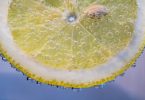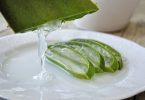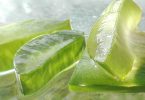Are you tired of using harsh chemicals that may have some less-than-desirable effects on your health? Well, it might be time to explore a more natural approach to cleaning.
Plant-based cleaners offer a gentle yet effective way to remove toxins and irritants from your home. But what exactly makes them so special? And how do they compare to traditional cleaners?
In this discussion, we will uncover the dangers of chemical cleaners, the benefits of using plant-based alternatives, and some practical tips for incorporating them into your cleaning routine.
Get ready to discover a whole new world of eco-friendly cleaning solutions that are safe for you and the environment.
Understanding the Dangers of Chemical Cleaners
Understanding the dangers of chemical cleaners is crucial for maintaining a safe and healthy living environment. When you use chemical cleaners, you expose yourself to harmful substances that can have serious health effects. These cleaners often contain harsh chemicals such as ammonia, bleach, and phthalates, which can irritate your skin, eyes, and respiratory system. Inhaling the fumes from these cleaners can lead to respiratory issues such as asthma or bronchitis. Additionally, some chemical cleaners may contain carcinogens, which are substances that can increase your risk of developing cancer.
Not only do chemical cleaners pose risks to your health, but they can also harm the environment. When you use these cleaners, the harmful chemicals can seep into the soil and water supply, polluting our ecosystems. This can have far-reaching consequences for both plant and animal life.
Fortunately, there are alternatives to chemical cleaners that can effectively clean your home without the risks. Plant-based cleaners, for example, are made from natural ingredients that are non-toxic and biodegradable. These cleaners are just as effective at removing dirt and grime, but without the harmful side effects.
Benefits of Using Plant-Based Cleaners
Using plant-based cleaners offers numerous benefits for both your health and the environment. Firstly, these cleaners are made from natural ingredients, such as fruits, vegetables, and essential oils, which aren’t harmful to your health. Unlike chemical cleaners, plant-based cleaners don’t contain toxic substances like ammonia, chlorine, and phthalates, which can cause respiratory problems, skin irritation, and allergic reactions. By using plant-based cleaners, you can reduce your exposure to these harmful toxins and protect your overall well-being.
Moreover, plant-based cleaners are also environmentally friendly. Chemical cleaners often contain harsh ingredients that can be detrimental to the environment. When these cleaners are used and disposed of, they can pollute water sources and contribute to air pollution. On the other hand, plant-based cleaners are biodegradable and don’t release harmful chemicals into the environment. They break down naturally and don’t leave behind toxic residues. By choosing plant-based cleaners, you’re actively contributing to the preservation of our planet and reducing your carbon footprint.
Additionally, plant-based cleaners are often cruelty-free and not tested on animals. If you’re concerned about animal welfare, using plant-based cleaners allows you to clean your home without supporting animal testing practices.
Common Toxins Found in Traditional Cleaners
Common household cleaners often contain a variety of toxic substances that can be harmful to your health and the environment. These toxins can pose serious risks, especially if you’re exposed to them regularly.
One common toxin found in traditional cleaners is ammonia. Ammonia is a strong irritant that can cause respiratory problems, skin burns, and eye irritation. It can also be harmful if ingested or mixed with other chemicals.
Another common toxin is bleach, which contains chlorine. Chlorine can release toxic fumes when mixed with other chemicals, such as ammonia or vinegar. These fumes can cause respiratory issues and can be especially harmful to individuals with asthma or other respiratory conditions.
Additionally, some cleaners contain phthalates, which are chemicals used to add fragrance to products. Phthalates have been linked to hormonal disruptions and can be particularly harmful to pregnant women and young children.
Other toxins commonly found in traditional cleaners include formaldehyde, sodium hydroxide, and petroleum-based solvents. These chemicals can have detrimental effects on both human health and the environment.
How Plant-Based Cleaners Effectively Remove Toxins
To effectively remove toxins, plant-based cleaners offer a safe and environmentally friendly alternative to traditional cleaners filled with harmful chemicals. These cleaners are designed to target and eliminate toxins without compromising your health or the environment.
Plant-based cleaners contain natural ingredients derived from plants such as citrus fruits, vinegar, and essential oils. These ingredients have powerful cleaning properties that can effectively break down and remove toxins from surfaces. For example, citrus fruits contain citric acid, which is an excellent natural degreaser and can effectively remove stubborn stains and grime.
The effectiveness of plant-based cleaners lies in their ability to break down and dissolve toxins, rather than simply masking or covering them up. They work by binding to the toxins and breaking them down into smaller, less harmful substances that can be easily rinsed away.
Furthermore, plant-based cleaners are free from harsh chemicals such as chlorine, ammonia, and petroleum-based solvents that are commonly found in traditional cleaners. These chemicals can’t only be harmful to your health but also contribute to air and water pollution.
Gentle on Skin and Respiratory System
Plant-based cleaners are gentle on your skin and respiratory system, making them a safer choice for your cleaning needs. Traditional cleaning products often contain harsh chemicals that can irritate your skin and trigger respiratory problems. However, plant-based cleaners are made from natural ingredients derived from plants, such as essential oils and botanical extracts, which are known for their mild and non-toxic properties.
When using plant-based cleaners, you don’t have to worry about experiencing skin irritations or respiratory issues. These cleaners are formulated to be gentle on your skin, preventing dryness, redness, and itchiness that can occur when using chemical-laden products. They’re also free from volatile organic compounds (VOCs), which are known to release harmful fumes and contribute to poor indoor air quality. By choosing plant-based cleaners, you can breathe easier and reduce the risk of respiratory conditions like asthma and allergies.
Furthermore, plant-based cleaners aren’t only gentle on your skin and respiratory system but also eco-friendly. They’re biodegradable, meaning that they break down naturally without harming the environment. This makes them a responsible choice for those who want to minimize their carbon footprint and protect the planet.
Eco-Friendly Cleaning Alternatives
If you’re looking for environmentally friendly options, there are alternative cleaning products that are gentle on your skin and respiratory system. Eco-friendly cleaning alternatives are a great choice for those who want to reduce their impact on the environment while keeping their homes clean and healthy.
One option is to use vinegar and water as a natural cleaning solution. Vinegar is a powerful disinfectant that can remove dirt, grime, and bacteria from surfaces. It’s also safe to use around children and pets.
Another eco-friendly alternative is baking soda. Baking soda is a versatile cleaning agent that can be used to remove stains, deodorize carpets, and unclog drains. It’s non-toxic and can be safely used in kitchens and bathrooms.
Additionally, hydrogen peroxide is an effective alternative to bleach. It can be used to disinfect surfaces and remove stains. It’s also gentle on the skin and respiratory system.
These eco-friendly cleaning alternatives aren’t only better for the environment, but they’re also safer for you and your family.
DIY Plant-Based Cleaner Recipes
You can easily create your own plant-based cleaner recipes at home. Making your own cleaners not only helps you avoid toxic chemicals, but it also saves you money. Here are a few simple DIY plant-based cleaner recipes to get you started.
First, let’s talk about an all-purpose cleaner. Mix equal parts white vinegar and water in a spray bottle. This solution can be used to clean countertops, windows, and even floors. Vinegar is a natural disinfectant and can help remove dirt and grime.
Next, let’s tackle a homemade glass cleaner. Combine one cup of water with one tablespoon of rubbing alcohol and one tablespoon of white vinegar. Shake the mixture well and use it to clean your mirrors and windows. This recipe leaves your glass surfaces streak-free and shiny.
If you’re looking for a natural alternative to chemical-laden laundry detergents, try making your own. Mix one cup of borax, one cup of washing soda, and one bar of grated castile soap. Use two tablespoons of this mixture per load of laundry. It not only cleans your clothes effectively but also leaves them smelling fresh.
These are just a few examples of the many plant-based cleaner recipes you can create at home. Experiment with different ingredients and find the ones that work best for your cleaning needs. You’ll be amazed at how effective and safe these homemade cleaners can be.
Tips for Incorporating Plant-Based Cleaners Into Your Cleaning Routine
To seamlessly incorporate plant-based cleaners into your cleaning routine, consider implementing these helpful tips.
First, start by gradually replacing your conventional cleaning products with plant-based alternatives. You don’t have to switch everything all at once; take it one product at a time. Start with the ones you use most frequently, such as all-purpose cleaners or dish soap. This approach will make the transition smoother and more manageable.
Next, educate yourself on the ingredients to look for and avoid in plant-based cleaners. Read labels carefully and opt for products that are free from harsh chemicals, artificial fragrances, and dyes. Look for certifications like ‘organic’ or ‘eco-friendly’ to ensure that the product meets your standards.
Another tip is to experiment with DIY plant-based cleaner recipes. Not only can you save money by making your own cleaners, but you also have control over the ingredients used. Simple ingredients like vinegar, baking soda, and essential oils can be used to create effective and safe cleaning solutions.
Additionally, consider using reusable cleaning tools like microfiber cloths and mop pads. These tools aren’t only eco-friendly but also work well with plant-based cleaners. They can effectively trap dirt and bacteria without the need for harsh chemicals.
Lastly, make it a habit to declutter and clean regularly. By keeping your living spaces tidy and organized, cleaning becomes more efficient and less time-consuming. Incorporating plant-based cleaners into your routine won’t only benefit your health but also the environment.
Choosing the Right Plant-Based Cleaner for Your Needs
Consider your specific cleaning needs and preferences when choosing the right plant-based cleaner for you. With the wide variety of plant-based cleaners available on the market, it’s important to select one that aligns with your individual requirements.
Start by identifying the areas in your home that require cleaning and the type of surfaces you’ll be working with. If you have allergies or sensitivities, opt for plant-based cleaners that are fragrance-free and hypoallergenic. For tough stains and grime, look for plant-based cleaners that have strong degreasing properties. If you’re concerned about the environment, choose cleaners that are biodegradable and packaged in recyclable materials.
Consider the ease of use and convenience as well. Some plant-based cleaners come in ready-to-use sprays, while others require dilution. Read product labels carefully to ensure you understand the instructions and precautions.
Additionally, consider the cost and value for money. While some plant-based cleaners may be more expensive upfront, they can often be more concentrated, leading to a longer-lasting and more cost-effective solution.







